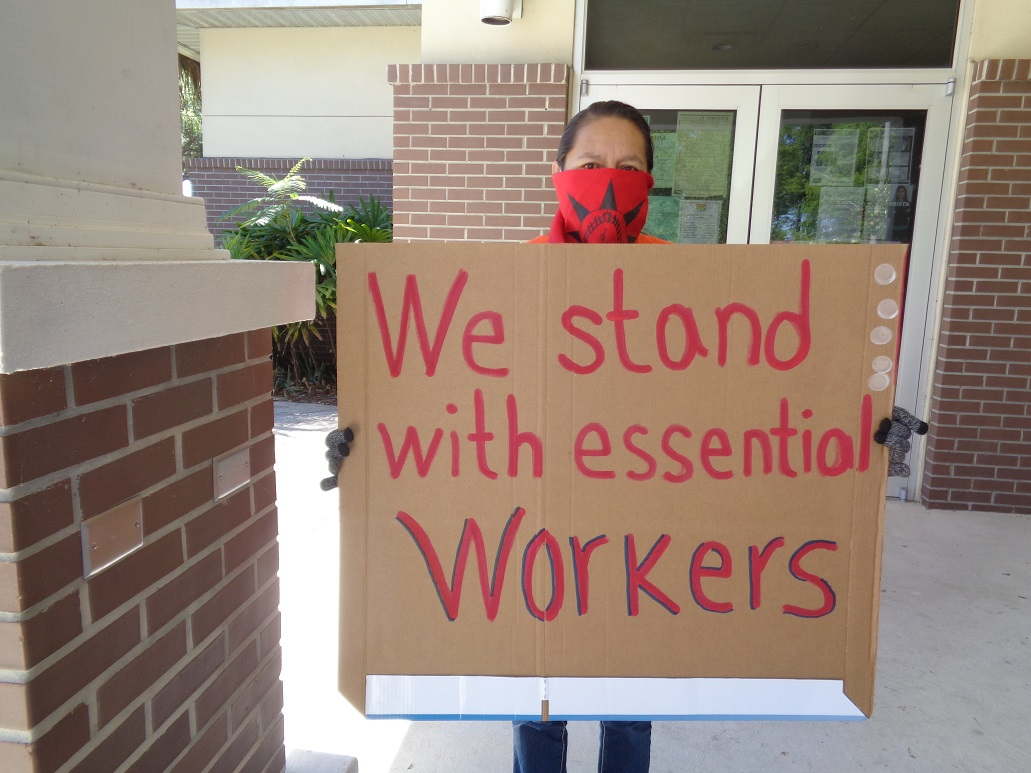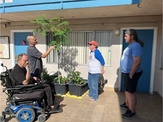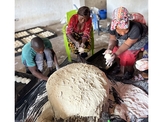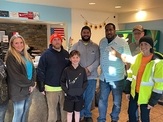One Great Hour of Sharing
Nonprofit partner of PC(USA) works to keep farmworkers safe
Immigrants who make their way to Florida to work in the agricultural industry find an ally in the Farmworker Association of Florida, a partner of multiple Presbyterian Church (U.S.A.) ministries.
Since the 1980s, the nonprofit social-justice organization has been an advocate for the rights, health and safety of thousands of people looking for a better life in the United States.
“We’re a membership organization and we have over 10,000 members,” said David Crump, grants manager for the statewide association. There are “probably in the neighborhood of about 5,000 people that are involved in some kind of activity each year.”
The association’s members primarily are Latinx people, who along with a smaller Haitian and African American base, are at risk of encountering racism and exploitation. Many are undocumented, low-paid and do not speak English as their first language but provide essential services in the Sunshine State.
“Pretty much every year we have to fight off some kind of anti-immigrant policy in the state of Florida,” Crump said.
Andrew Kang Bartlett, the National Associate for the Presbyterian Hunger Program, a partner organization, added, “Tomatoes, watermelon, citrus and other crops are very labor-intensive, and over the years, we have witnessed far too many cases of growers exploiting and abusing immigrant workers. PHP, the Presbyterian Committee on the Self-Development of People and Presbyterian Disaster Assistance have tried to respond to this crisis with ongoing support of the Coalition of Immokalee Workers and the Farmworkers Association of Florida. Peace River Presbytery has also been very supportive.”
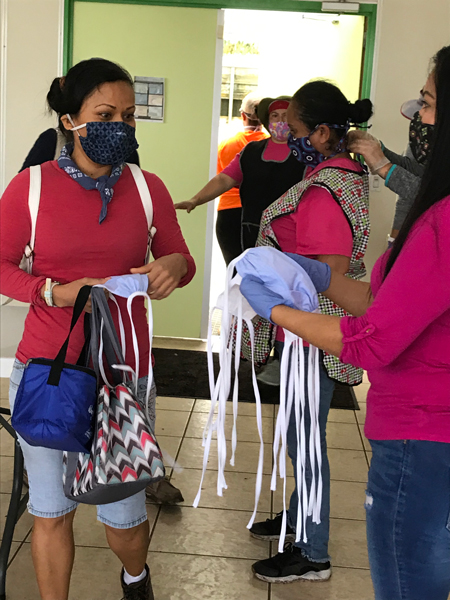
The Farmworker Association of Florida has distributed more than 14,500 face masks during the pandemic. (Photo courtesy of the association)
However, the pandemic has brought other needs to the forefront and prompted the association to broaden its focus to include COVID-19 education as of last year. After the pandemic hit, the association distributed more than 14,500 face masks and began disseminating videos, flyers and other communications about testing and prevention.
“They’re all short videos, you know, just a few minutes,” typically in Spanish or other languages used by the farmworkers, Crump said. They get posted on Facebook and YouTube and generate thousands of views.
The association has hosted COVID-19 testing at its Apopka location and will be sharing information about vaccination as part of its efforts to protect farmworkers, who are at risk of COVID-19 for a number of reasons.
Maintaining social distancing can be difficult during farm work, and conditions can be hot and sweaty while toiling in the fields in Immokalee and elsewhere or in humid indoor operations, making it difficult to maintain functioning masks, Crump said. Protective gear is not always provided by employers.
The association has “gone to the fields and distributed masks to folks,” he said. “We try and provide them with two or three or four masks” that are washable so they can be ready for reuse the next day.
Because of the immense economic toll that COVID-19 has taken on the economy, the association also has been helping families to connect with services to offset the negative impact of the pandemic on tourism, agriculture and other industries in Florida.
“We normally do not emphasize doing social services, but we shifted to helping families with SNAP — food assistance applications — with Medicaid applications and with unemployment applications,” Crump said. “All of those things became really important” because “very quickly in our community, folks were losing work” due to the pandemic.
Thanks to various funders, including the Presbyterian Hunger Program, the association has been able to provide more than $136,000 in rent-and-utility assistance to nearly 425 families during the pandemic. The association also has given out more than 35,000 boxes of fresh and non-perishable food items as well as hot meals to local community members.
Along the way, the association continues to hold fast to its long-standing commitment to worker safety and worker rights, including helping workers to learn what rules are in place regarding potentially harmful pesticides.
The group also promotes immigrant rights and civic engagement to influence policy at the state and federal levels. It was active in getting out the vote during the last election season. Also, “we organize to meet with their representatives and things in Tallahassee and Washington sometimes,” Crump said.
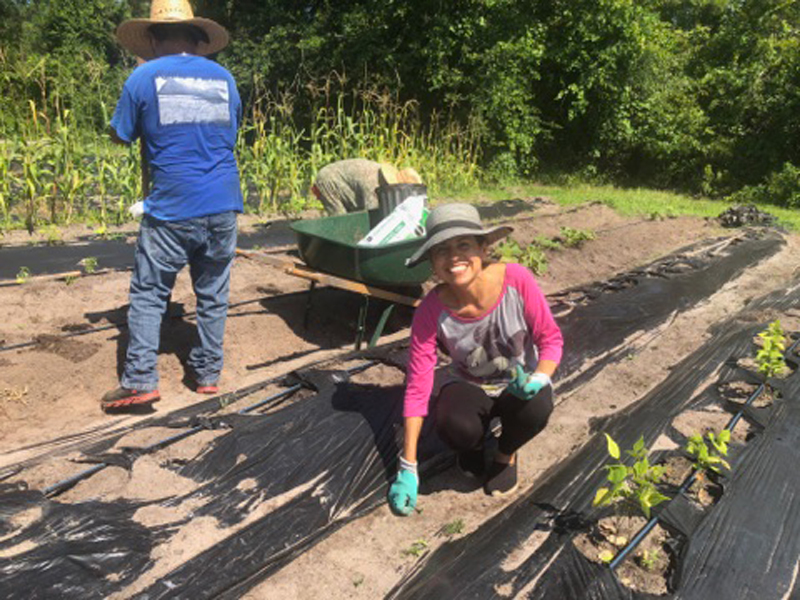
Spring planting at the Campesinos’ Garden in Apopka. (Photo courtesy of the association)
Agroecology is another area the association is involved in. It has five Campesinos’ (community) gardens in various communities to help produce healthy food without the use of chemicals.
“Local farmworkers manage and run the gardens and do the work there,” Crump said. “It’s a source of food, but it’s also a place of learning together,” exchanging traditional understandings from their homelands and gaining more recent knowledge about agroecology and how to grow food in ways that benefit the Earth.
In material from the association, a farmworker identified as Blanca explained the personal impact. “I like the way FWAF does its work,” she said. “I have learned a lot, but I am also able to share my own knowledge from my experience and background. I have taken part in trainings and have learned about the importance of original seeds in contrast to genetically modified seeds that are promoted by the big agro-industries. I have also learned about the dangers related to the use (of) pesticides and have blended what I grew up knowing as a child and what I have learned in the trainings about agroecology, of how to grow things in a natural and organic way, without chemicals. I have also learned how important having fresh, healthy fruits and vegetables are for our diet.”
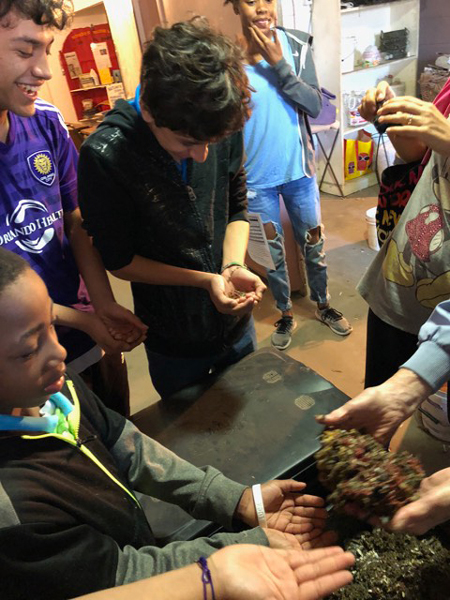
Children learn about the importance of composting. (Photo courtesy of the association)
Along with opening up such opportunities for farmworkers, the association is partnering with universities on research about issues, such as heat stress, that are pertinent to members.
“Those papers then become a basis for arguing for particular policy issues,” such as having restrooms and fresh water available for farmworkers and having periods of time for people to take breaks in the shade, Crump said.
Watch the webinar “Farmworkers in the Pandemic” by clicking here.
The Presbyterian Hunger Program, the Presbyterian Committee on the Self-Development of People and Presbyterian Disaster Assistance are all Compassion, Peace and Justice ministries of the Presbyterian Mission Agency. They are supported by your gifts to One Great Hour of Sharing.
This was published for Presbyterian News Service on February 10, 2021.
read more stories:
participate with us
When we all do a little,
it adds up to a lot.
Each gift to One Great Hour of Sharing helps to improve the lives of people in challenging situations. The Offering provides us a way to share God’s love with our neighbors in need. In fact, OGHS is the single, largest way that Presbyterians come together every year to work for a better world. Join us!
